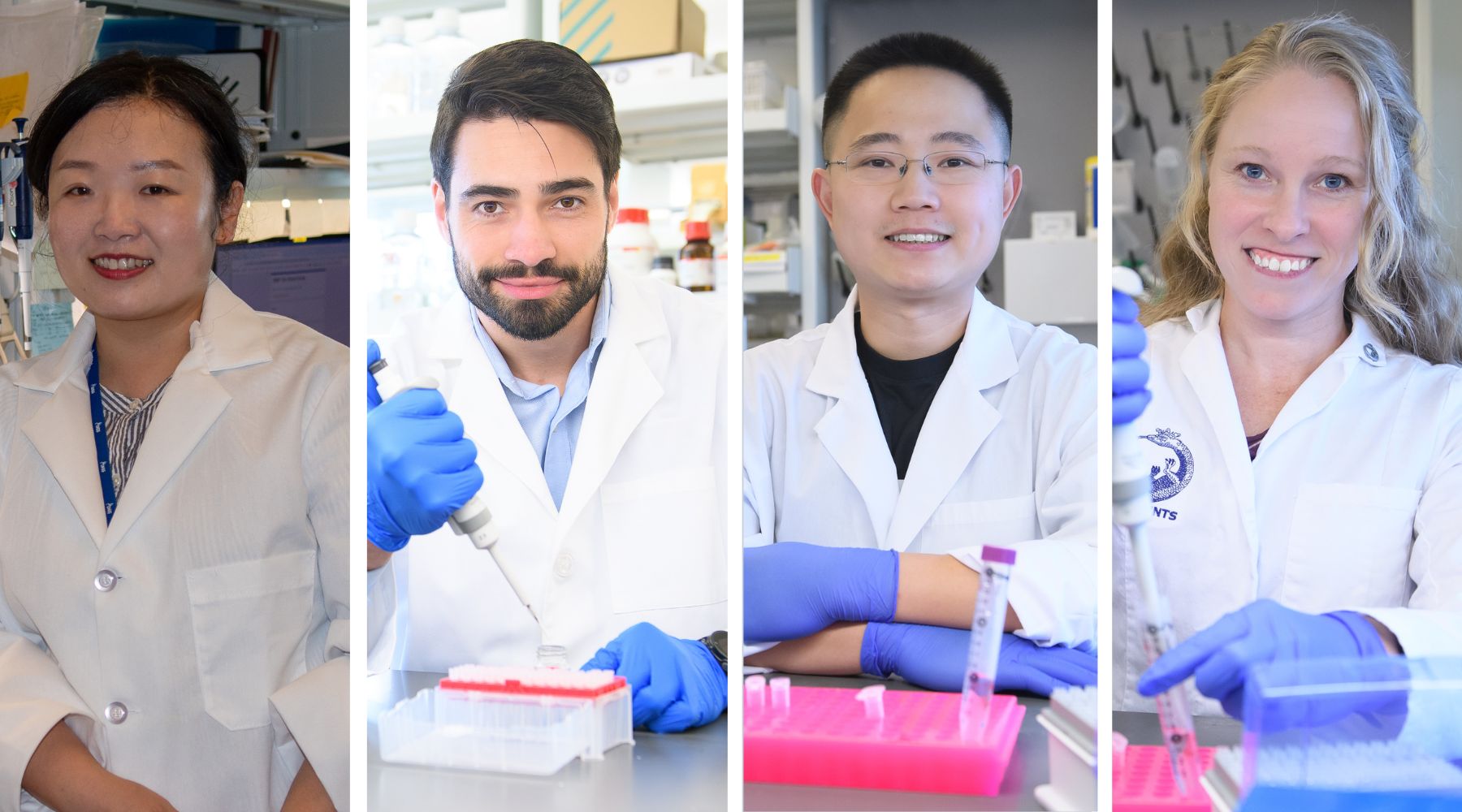Four postdoctoral researchers at the Oklahoma Medical Research Foundation recently received grants to continue their paths toward establishing independent research programs.
Postdoctoral researchers, or postdocs, are early-career scientists who have earned their doctorates but have not yet established their own laboratories. These grants, from public and private funding entities, are crucial for the postdocs and for OMRF alike, said Vice President of Research Courtney Griffin, Ph.D.
“For the postdoc, simply applying for these grants provides invaluable experience in grant writing, which is something they’ll do frequently when they get their own lab,” Griffin said. “Funding begets funding, and the earlier you can establish yourself as a bankable commodity, the better.”
For OMRF, postdoc grants pay for vital research that otherwise might remain unfunded ideas. These grants also serve as a recruiting tool, Griffin said. “It’s in our DNA to train the next generation of scientists, but on top of that, their success builds our brand as a place where postdocs get funded.”
Sunhye Jeong, D.V.M., Ph.D., received a three-year, $238,932 grant from the National Institute of Arthritis and Musculoskeletal and Skin Diseases, part of the National Institutes of Health. Jeong’s research aims to better understand myofibroblasts, which can generate excessive scar tissue as wounds heal. Her grant is No. 1F32AR083823-01A1.
Eric Ma, Ph.D., will study a main cause of diabetes-related vision disorders, thanks to a two-year, $144,500 grant from the American Heart Association. Ma hopes to discover a path toward new preventive therapies for these vision disorders.
Paulo Mesquita, Ph.D., has received a $100,000 Catalyst Award from the American Lung Association. He hopes to better understand muscle atrophy in the diaphragm, a sometimes-deadly side effect of hospital ventilator use, particularly in older people. He will investigate whether an existing drug called rapamycin effectively treats or prevents this condition.
With a two-year, $126,000 grant, Colleen O’Reilly, Ph.D., will investigate metformin, the world’s most popular diabetes drug. Metformin is recognized for extending the period diabetics remain free of chronic disease, but the effect on healthy people is less clear. O’Reilly will investigate the interaction of metformin and aerobic exercise to understand who will benefit from the drug and who won’t.
O’Reilly’s grant, No. 1F32AG087622-01, was awarded by the National Institute on Aging, part of the National Institutes of Health.
In addition to funding, O’Reilly said the grant provided confirmation that her work is on the right scientific trajectory. “You’re always wondering whether your ideas are good enough to continue a path in science,” she said. “So, when a review committee says that not only is my idea is good enough, but that they’re going to fund it, wow!”



